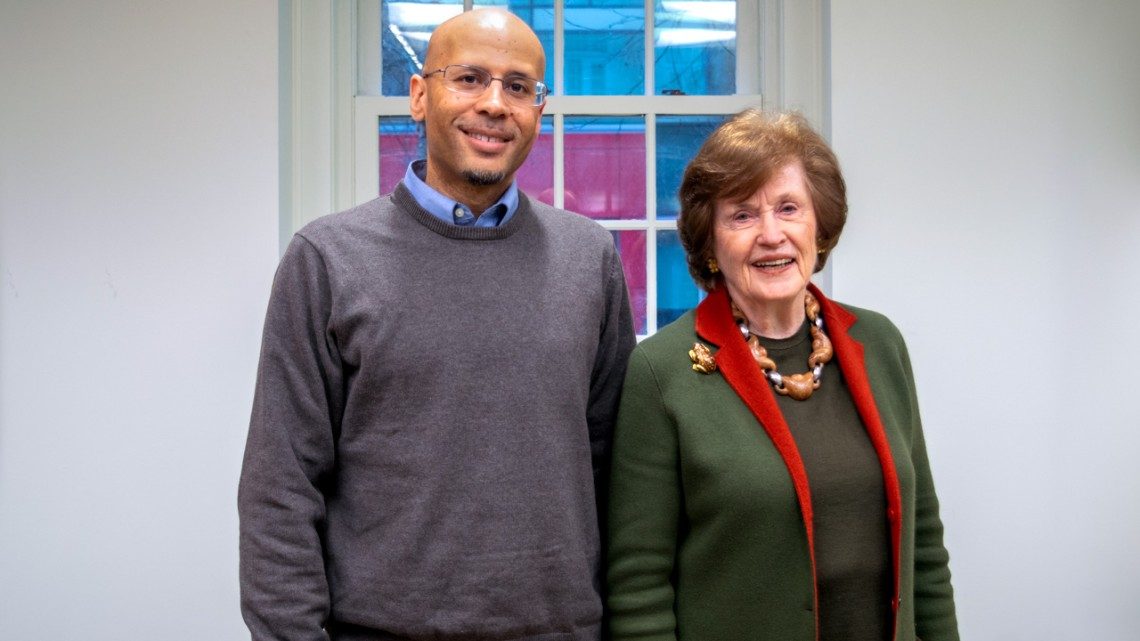The late professor Raymond T. Fox ’47, MS ’52, PhD ’56, renowned for his floral displays at Cornell events, devoted more than 50 years to floriculture teaching and outreach. Now, a bequest of approximately $2 million from his estate will enrich the educational experiences of future students in the plant sciences.
The Raymond and Vera Fox Floriculture and Ornamental Horticulture Fund will support scholarships and fellowships as well as student participation in supplemental educational programs for undergraduate plant science students.
Fox began his Cornell career as an instructor in the Department of Floriculture and Ornamental Horticulture in 1947. He subsequently earned his master’s and doctorate, also at Cornell, and was promoted to full professor in 1979, serving until his retirement in 1987. He died in 2019.
His academic pursuits focused on teaching and outreach. He taught popular courses in floral design and retail flower store management, and was legendary for organization and set up of floral displays at campus events.
Vera Hakanson Fox ’48 died in 2009 at the age of 95. After receiving her bachelor’s in horticulture, she worked as an extension specialist in floriculture, teaching classes in flower arranging and illustration. Following her marriage, she continued her career at the Cornell Peter and Stephanie Nolan School of Hotel Administration. In later years, the couple led several Cornell alumni trips to famous gardens in Europe and were sought after for their floral displays at weddings, inaugurations and the Lake Placid Olympics.
“Dr. Fox’s legacy will transform the educational experience we can provide to our students,” said Chris Smart, director of the School of Integrative Plant Science (SIPS). “Experiential and hands-on learning is such an important part of our educational mission. Through the generosity of this bequest, we can reduce the financial barriers to participation in programs such as experiential learning abroad, as well as providing support for learning opportunities in our greenhouses, farms and orchards.”
The fund will also support a merit-based award to undergraduates interested in the floral industry, a partial graduate fellowship for students interested in floriculture, and educational programming for the undergraduate horticulture club, Hortus Forum.
“Given the recent advances in greenhouse technology and growing consumer demand, this is an exciting time to be doing research on ornamental plants for gardens and floristry,” said Bill Miller, professor of horticulture in SIPS and a friend of Fox. “This gift will help us attract top-notch students to this rapidly changing field.”
In addition, $40,000 of the bequest is designated for the design, creation and maintenance of a bird sanctuary at the Cornell Botanic Gardens. Under the guidance of the Sustainable Landscape Learning by Leading Team, Cornell students will learn how to shape and judge a design competition, and how to implement the winning selection.
“It is so gratifying that Ray Fox’s long-standing commitment to Cornell University and student education will continue for many years to come,” Smart said. “By reducing financial barriers, this gift significantly advances our commitment to providing exciting and unique educational opportunities to all our students in the plant sciences.”
Written by Magdalen Lindeberg, the assistant director for the School of Integrative Plant Science. This was first published in the Cornell Chronicle.





